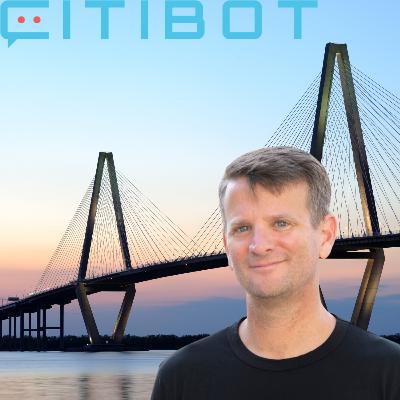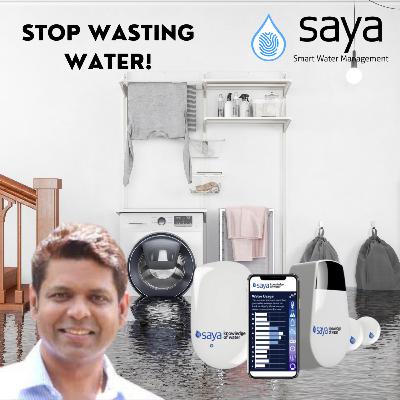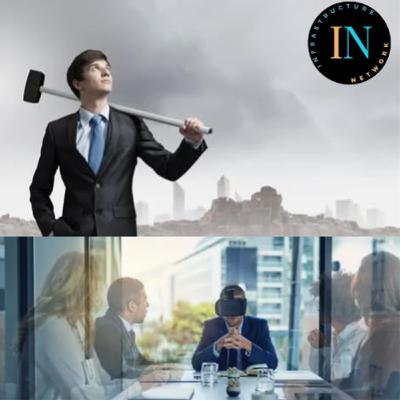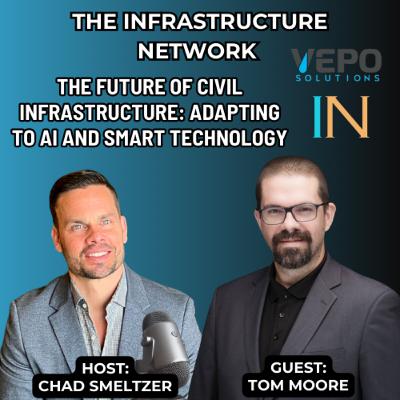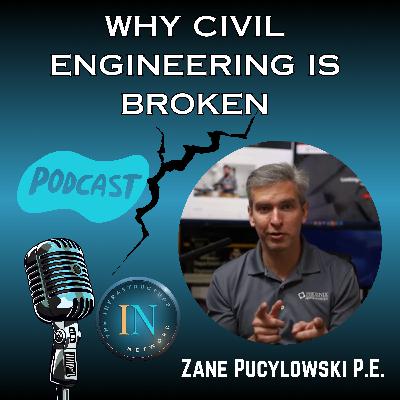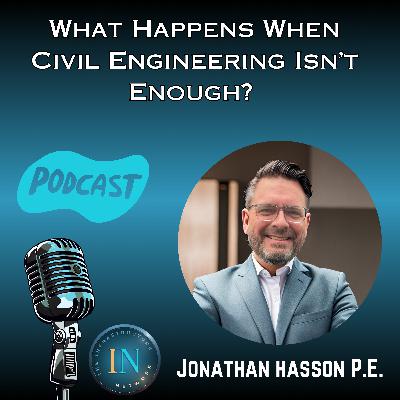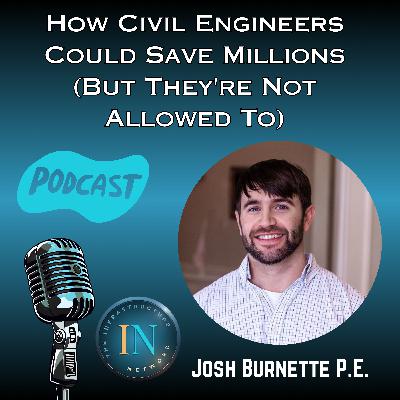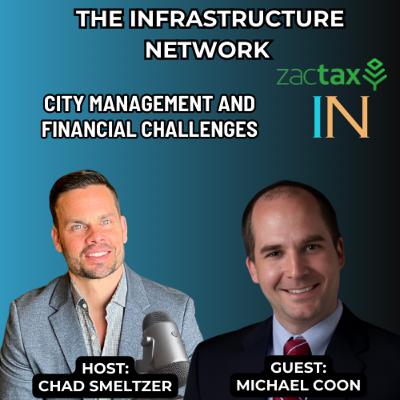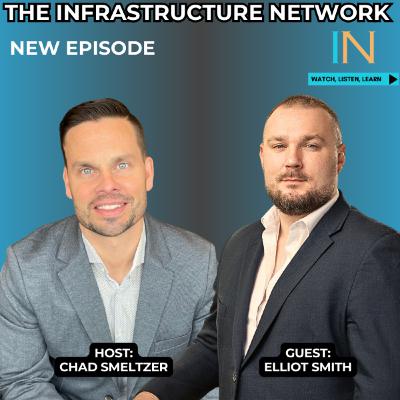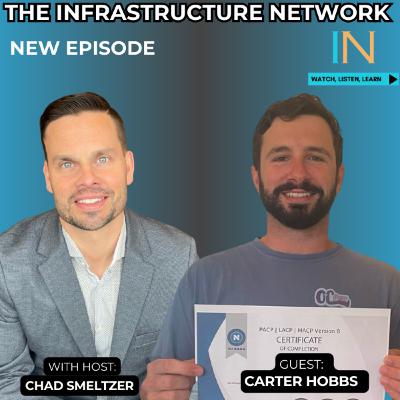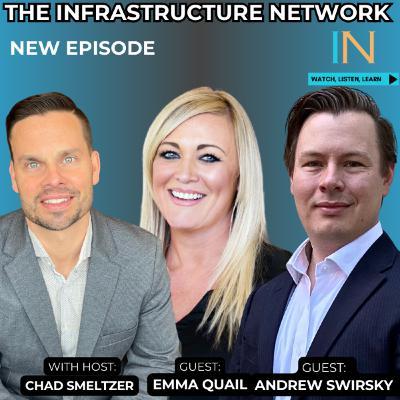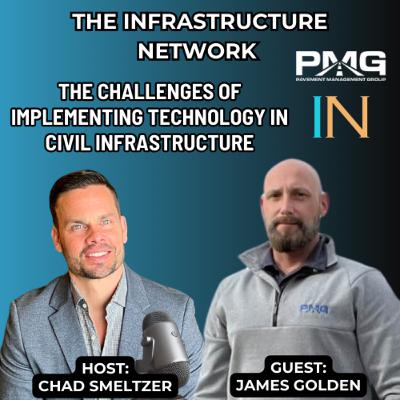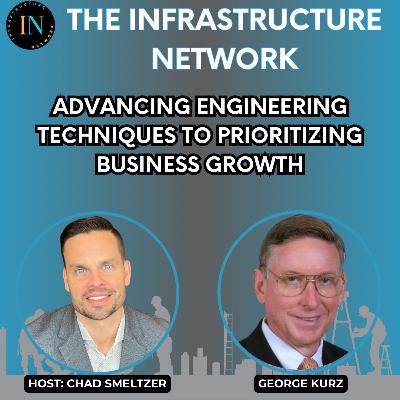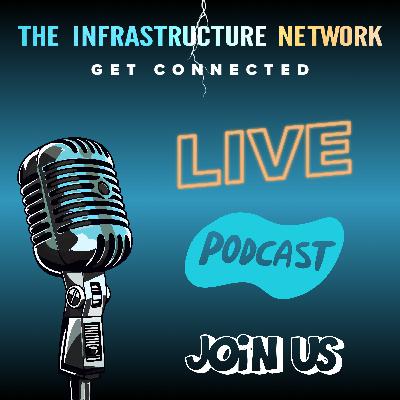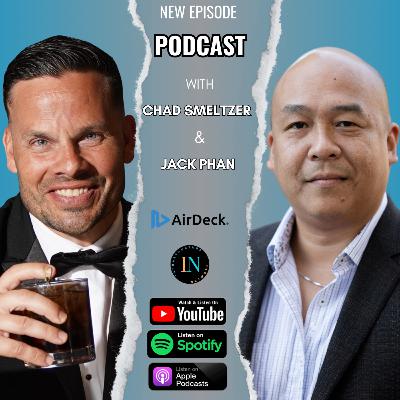Discover The Civil Infrastructure Network
The Civil Infrastructure Network

The Civil Infrastructure Network
Author: The Civil Infrastructure Network
Subscribed: 6Played: 21Subscribe
Share
© The Civil Infrastructure Network
Description
🎙️ The Civil Infrastructure Network is a media platform for civil engineers, public works professionals, utility managers, city officials, and construction leaders who are ready to challenge the status quo and deliver real education about the communities in which they live and work.
We cover real issues — burnout, underpay, outdated systems — and spotlight forward-thinking solutions through leadership, AI, automation, communication, and entrepreneurship.
From the field to the office, we’re building a connected community to share insights, educate the next generation, and unite people.
We cover real issues — burnout, underpay, outdated systems — and spotlight forward-thinking solutions through leadership, AI, automation, communication, and entrepreneurship.
From the field to the office, we’re building a connected community to share insights, educate the next generation, and unite people.
50 Episodes
Reverse
Join us as we sit down with Bratton Riley, co-founder and CEO of CityBot, a multi-channel chatbot platform designed specifically for improving customer service in local governments. With his extensive experience growing up around local government and learning from his father, former mayor of Charleston, South Carolina, Bratton is passionate about building trust and inclusivity in government. In this episode, we discuss the challenges of bringing technology to government, the importance of customer service in local government, and the lessons Bratton learned from his father's legacy. Tune in to learn how CityBot is changing the game for local government customer service and how Bratton is building a better future for our communities.
#GovTech #LocalGovernment #CustomerService #AI #Innovation #Entrepreneurship #Leadership #SocialImpact #Charleston #SouthCarolina #TechnologyInGovernment #CitiBot
Join us as we delve into the world of water infrastructure and innovation with Sanjay Poojary, CEO and founder of Saya Life. In this episode, we'll discuss how his smart water management system, powered by AI and machine learning, is revolutionizing the industry by effectively detecting water-related anomalies and preventing catastrophic losses. Don't miss out on this insightful conversation about the intersection of technology and water conservation.
Join us on this episode as we dive deep into the reasons why municipal utilities are often hesitant to adopt new technologies. Our expert guests will explore the various barriers and challenges that municipalities face, including limited budgets, regulatory hurdles, and a risk-averse culture. We'll also discuss the potential benefits and opportunities of technology adoption, such as increased efficiency, improved customer service, and enhanced environmental sustainability. Don't miss this insightful conversation about the obstacles and opportunities for innovation in the municipal utility sector.
In this episode of The Infrastructure Network podcast, we sit down with Andrew Watkins and Chris Foreman, the founders of Marketplace.city, to discuss their mission of simplifying technology procurement for local governments. They share insights on the challenges that local governments face when procuring technology, how Marketplace.city's Clearbox Process guides stakeholders through the sourcing and validation process, and the importance of partnerships with leading cities to continually improve their platform. Join us for an insightful conversation on how Marketplace.city is transforming the way local governments source and procure technology.
Tom Moore is the Vice President of Operations at Vepo Solutions and the CEO and President of 123 Backflow Testing. With his start in 2008 in civil infrastructure, Tom has established a significant presence in the industry, particularly in the New York City metro area. After initially involving himself in water meter changes as a favor to a friend, he quickly recognized opportunities in the backflow prevention space and has since grown his company to perform nearly 20,000 backflow tests annually. Tom is also heavily engaged in the adoption and implementation of smart city technologies and is pioneering the evolution of smart water metering systems across the United States.
The Hidden Dangers of PFAS: An Informative Podcast by The Infrastructure Network" discusses the little-known but significant issue of PFAS contamination and its impact on our infrastructure. The podcast aims to raise awareness of the problem by providing relevant and up-to-date information about PFAS and offering solutions to prevent and remediate contamination. Through the use of informative and promotional language, the podcast seeks to engage and encourage its audience to take action, highlighting the importance of protecting our infrastructure and public health. Relevant hashtags and other social media tools are utilized to ensure that the podcast reaches a wider audience interested in the topic of PFAS contamination.
Zane Pucylowski is on a mission to fix a broken industry. In this episode, Chad Smeltzer dives into Zayn’s journey from muddy job sites to launching a million-dollar marketing company all while running an engineering firm.They break down the crisis in engineering talent, why most firms are undercharging, and how Gen Z can (and will) change the future of construction if we let them.This one’s packed with honest insights, real solutions, and a wake-up call for every civil engineer, fabricator, and municipal leader out there.🔗 Connect with Zayn: phoenixengineering.com | @ZaynEngineersLife📲 Connect with Chad: linkedin.com/in/chadsmeltzer
In this episode of The Infrastructure Network Podcast, host Chad Smeltzer sits down with Jonathan Hasson, VP of Smart Water Solutions at Aquasight llc, to explore his unconventional career path — from civil engineering roots to leading in intelligent water tech.🚀 Topics Covered:Early influences that led Jonathan to Mississippi State UniversityHis experience in structural design and nuclear co-opsTransition from engineering consulting to utility operationsLessons from managing water/wastewater systems in Puerto RicoHow tech and AI are reshaping civil engineeringOvercoming rigid consulting structures and gatekeepingThe future of smart water systems and software innovationEmpowering the next generation of engineers📌 Whether you're a young professional, an industry veteran, or simply curious about where infrastructure is headed — this conversation offers real insight into the evolving landscape of engineering, technology, and leadership.⏱️ Timestamps00:00 – Welcome + Intro to Jonathan Hassan (AquaCite VP, Smart Water Solutions)01:04 – How a girlfriend’s dad + strong math skills led Jonathan to civil engineering02:56 – Why he chose Mississippi State + early exposure through his older brother04:42 – Starting co-op work after freshman year at a nuclear power facility06:50 – The value of hands-on experience and realizing civil’s broad career paths08:25 – Why he added a master’s degree before entering the workforce09:54 – First job: Design engineering at Metcalf & Eddy11:35 – Why he left consulting: advancement by tenure, not merit12:25 – Shifting into operations & management roles in Puerto Rico14:42 – Working under EPA & DOJ in water/wastewater utilities16:10 – Transition into business operations at ADS Environmental17:58 – 20 years at ADS: from field ops to director of product management19:40 – Moving into software: becoming VP at AquaCite21:04 – Personal challenges: fear of change, career leaps & self-doubt23:05 – Professional challenges: resistance to tech in legacy infrastructure25:00 – Industry evolution vs. industry revolution — and who’s lagging behind27:06 – Advice to the next generation of engineers29:10 – AI, reskilling, and the future of water & infrastructure jobs30:20 – Closing thoughts + where to connect with Jonathan
In this episode of The Infrastructure Network, Chad sits down with Josh Burnett, founder of RDS, to talk real infrastructure issues — cost overruns, low-bid traps, broken procurement, and the toxic culture inside civil engineering firms. Josh breaks down how he saved over $1.3 million in just a few projects by rethinking land development and refusing to play by the outdated rules.If you're in civil engineering, land development, construction, or infrastructure procurement, this conversation is a must-listen.👷♂️ Topics:Why most civil engineers don’t get to fully design (and what that’s costing us)The low-bid mindset: how it creates long-term infrastructure failuresWhy politics and profit often override planning and community impactWhat a smarter, people-first infrastructure model looks like⏱️ Timestamps:00:00 - Intro to Josh Burnett & Background02:29 - Breaking into civil engineering during the recession07:47 - Toxic culture in engineering firms & what drove Josh to leave10:07 - What it's really like to manage land development projects15:47 - Saving $1.3M by thinking differently about engineering21:05 - Low-bid culture: why cheap planning costs big later24:03 - Politics, greed, and why good plans still get blocked27:05 - Engineering vs Planning: Why working together saves money29:33 - Why planning is the hardest and most critical part
Michael's conversation with Chad Smeltzer covers the essentials of how city managers handle budgeting, the significance of long-term fiscal planning, and the challenges cities face with infrastructure management. Through his tenure in cities like San Antonio and Ventura, Michael emphasizes the importance of understanding both current and future fiscal impacts to create sustainable city environments. The episode also explores the innovative solutions offered by Zachtax in assisting cities with sales tax and property tax analytics for smarter, data-driven decision making.
Importance of Long-Term Planning: Cities often focus on short-term financials due to system limitations, ignoring crucial long-term infrastructure costs.
Data-Driven Decisions: Access to detailed, real-time data can empower city managers to make informed economic and infrastructure decisions.
Role of Zachtax: Zachtax provides necessary tools for cities to analyze sales tax and property tax data, aiding in economic development and fiscal sustainability.
Management Challenges: Transitioning from managing projects to managing people and navigating crises like Hurricane Harvey poses unique challenges for city managers.
Development and Fiscal Impact: Evaluating the fiscal impact of new developments can help cities plan sustainably and avoid future financial burdens.
Elliot Smith is a forward-thinking entrepreneur with a background in municipal engineering. With nearly seven years in consulting, Elliot discovered his path after recognizing the potential and necessity for innovation within civil infrastructure. Not limiting himself to engineering alone, he sought to expand his expertise and completed an MBA to bridge the gap between engineering and business. As the CEO of Motmot, Elliot has positioned himself at the forefront of modernizing underground infrastructure through technology.In this engaging conversation, host Chad Smeltzer explores the intersections of engineering, entrepreneurship, and technology with Elliot Smith, CEO of Motmot. The episode dives into the innovative world of civil infrastructure and how emerging technologies can revolutionize its maintenance and management. Elliot discusses his journey from discovering civil engineering to becoming an innovator seeking to disrupt the industry with advanced solutions for water system inspection and maintenance.From Elliot's evolution from an engineer to a business-savvy CEO, this episode sheds light on the pressing need for infrastructural insights and the development of Motmot's unique robot technology.### Key Takeaways:* Elliot Smith transitioned from a municipal engineer to an entrepreneur after identifying the need for more cost-effective infrastructure inspection.* Motmot, Elliot's company, is developing a robotic solution that offers long-term, autonomous inspection of water systems to help communities manage underground infrastructure.* There's a pressing need for transparency and public education on water systems, alongside more efficient funding and workforce strategies.* Advanced technologies like Motmot's robotic inspector can potentially save communities money and improve predictive maintenance of water systems.* The adoption of innovative infrastructure technologies faces resistance but also garners significant interest from communities seeking improved management tools.
In this revealing episode listeners get a glimpse into the world of underground infrastructure through the lens of industry expert Carter Hobbs.
Carter unpacks the complexities and challenges involved in locating and managing buried utilities—a topic of increasing importance amid rapid urban development.
Throughout the discussion, Carter Hobbs dives into the intricacies of locating underground utilities, clarifying the realities faced by construction professionals when encountering uncharted or mis documented infrastructure.
He touches upon the technology used, the "wild west" nature of record-keeping, and the collaborative efforts necessary to minimize risks associated with utility strikes.
This conversation sheds light on the growth-induced pressure on existing underground systems and the need for better data management practices.
Key Takeaways:
Growing urbanization has created a demand for expanded utility infrastructure, while outdated records complicate the accurate location of existing underground utilities.
The 811 system is a critical first step in utility location, but its markers can be inaccurately placed, necessitating hands-on verification through hydro excavation techniques.
Innovations in technology such as GPS tracking could greatly improve the accuracy of utility location, but current methods like ground-penetrating radar still lack reliability.
Data management is key; as construction companies and cities must collaborate better to ensure accurate records are retained, ensuring safer and more efficient future excavation endeavors.
Utility strikes are alarmingly commonplace—with striking occurring every nine minutes on average—costing billions annually in
Join host Chad Smeltzer as he discusses non-revenue water loss with water loss consultants Emma Quail and Andrew Swirsky. They explore the economic impact of water loss on utilities and the need for effective water loss reduction strategies. The conversation delves into the challenges utilities face in prioritizing water loss reduction and the importance of accurate data and measurement. The guests also emphasize the need for collaboration between utilities and service providers to implement effective non-revenue water management solutions. Don't miss this insightful discussion on the future of water management.### About the Guest(s):**Andrew Swirsky** is the founder of Infrasync, a firm dedicated to helping utilities leverage new technologies and accelerate their adoption to improve infrastructure. With a background in engineering, Andrew has worked with companies like Jones & Carter and Stantec, focusing on projects across the water cycle. His efforts span from large capital projects to digital twins and advanced technologies in leak detection.**Emma Quail** is an independent water loss control consultant with nearly 23 years of experience. With a master's in environmental science from Northern Ireland, she inadvertently found her passion in the non-revenue water space. Her experience includes hands-on leak detection, data analysis, sales, and business development. Emma advocates for practical experience in the field and has worked for major players in the industry, as well as engaging with startups to bring innovative water loss solutions to the market.
James Golden is the CEO of PMG Pavement Management Group and has made a substantial impact in the pavement management industry. With 27 years of experience under his belt, James has grown from a draftsman to a pioneering executive. His initial exposure to civil infrastructure began with an internship at the Ohio Department of Transportation, leading to the development of a profound understanding of pavement management consulting. James's passion for utilizing data-driven decisions has made him a mentor and an influential voice in the infrastructure community. His extensive background and innovative approach have positioned him as a thought leader in transforming the way municipal road networks are assessed and maintained.
George Kurz is a seasoned environmental engineer with a focus on sanitary sewer systems and water quality. Graduating from Tennessee Tech University in 1974, George Kurz has spent decades honing his expertise in environmental and sanitary engineering. He implemented the first EPA-approved pretreatment program in Tennessee while serving with the City of Chattanooga and has worked extensively on overflow abatement programs. Kurz emphasizes the importance of detecting and addressing infrastructure issues early and has dedicated much of his career to studying sewer systems, executing flow monitoring, and developing efficient methods for system analysis and rehabilitation.
Steve Rienks is a seasoned civil engineering professional who serves as the Director of Engineering at American Surveying and Engineering Company in Chicago. With a vivid background that stretches from military service as a heavy equipment operator to pivotal roles in developing major infrastructure projects like Chicago's Orange Line, Steve boasts a rich blend of hands-on experience and academic rigor. His career reflects a thorough understanding of civil engineering, construction management, and the nuances of urban development, marked by his ongoing efforts to improve utility detection and infrastructure documentation processes.
Mike McGill, founder of WaterPIO, discusses the importance of proactive communication for water and wastewater utilities. He shares his background in political news and PR work, and how he transitioned into the water industry. Mike emphasizes the need for utilities to work with the press, communicate with customers and elected officials, and build trust through proactive communication. He also discusses the challenges faced by utilities in dealing with lead and PFAS issues, and the importance of proper messaging and planning.
Chad Smeltzer interviews Robert Reavis, a state trooper and transportation technology leader at Veridat, on the Infrastructure network podcast. Reavis shares his background in law enforcement and discusses the challenges faced by police officers. He also highlights the importance of technology in law enforcement, particularly in protecting the integrity of data, such as body cam footage, from manipulation. Reavis emphasizes the need for smart city integration and proactive measures to ensure public safety. Contact Reavis on LinkedIn for further information.
In this compelling interview, Dr. Heidi Gregory-Mina, a seasoned business psychologist and mental health specialist, delves into the significant impact of stress and burnout on construction workers. With over 14 years of experience in healthcare and education, Dr. Gregory-Mina brings insightful perspectives on employee engagement, mental well-being, and creating a positive work culture. Join us as we explore the challenges faced by construction workers, the importance of prioritizing mental health in the industry, and the future of construction in the face of evolving technologies. Gain valuable insights into supporting the mental well-being of workers in the construction industry and the critical role it plays in safety and quality of infrastructure projects.
Jack Phan, CEO of AirDeck Co., shares his entrepreneurial journey and the lessons he learned from his father, who started an upholstery business after immigrating to the US. Jack discusses the challenges his father faced as an entrepreneur and the importance of building strong customer relationships.
He also talks about his experience in the tech industry and how he became involved with AirDeck Co. Jack explains how AirDeck Co. is revolutionizing digital communication by allowing users to narrate presentations and documents, track engagement, and personalize content. He shares his vision for the future of AirDeck Co. and the role of AI in enhancing communication on a global scale.
Key Takeaways:
Entrepreneurship is in Jack Phan's blood, thanks to his father's influence and his own passion for technology and innovation.
Word of mouth and building strong customer relationships are still essential for business success.
AirDeck Co. allows users to narrate presentations and documents, track engagement, and personalize content.
The future of AirDeck Co. includes global expansion, AI integration, and bridging the gap in communication.
Quotes:
"Entrepreneurship was something that I grew up with... my dad was always one of those people that always wanted to create things and take care of his family." - Jack Phan
"Word of mouth goes a long, long way... it's about how they feel and the relationships that they build with the people that are servicing them." - Jack Phan
"Your story needs to be told by you and your narrative, and AirDeck helps you do that." - Jack Phan
"AirDeck is revolutionizing the way we communicate... it's about saving time and doing things effectively, efficiently, and being able to scale your business and your content." - Jack Phan


